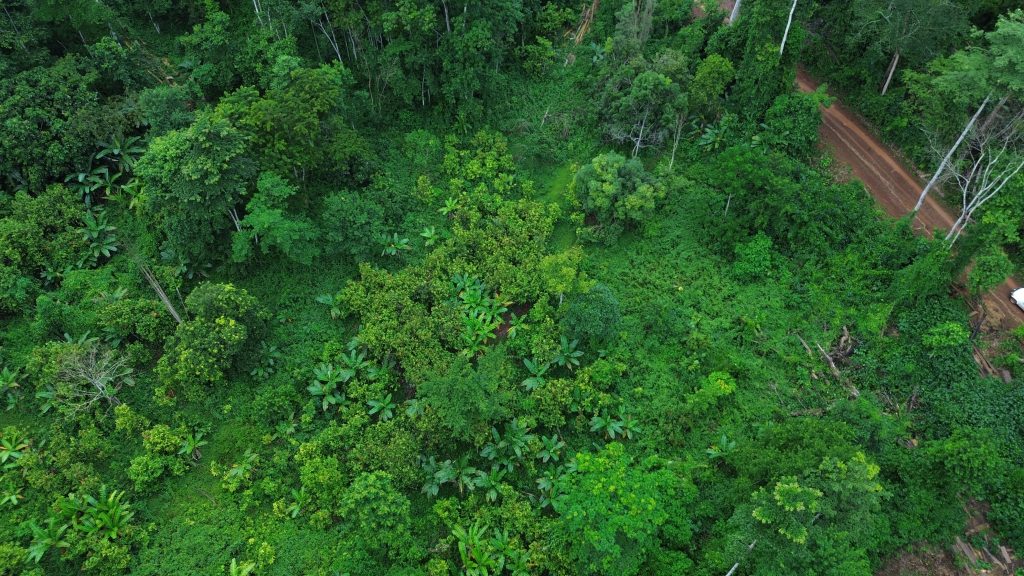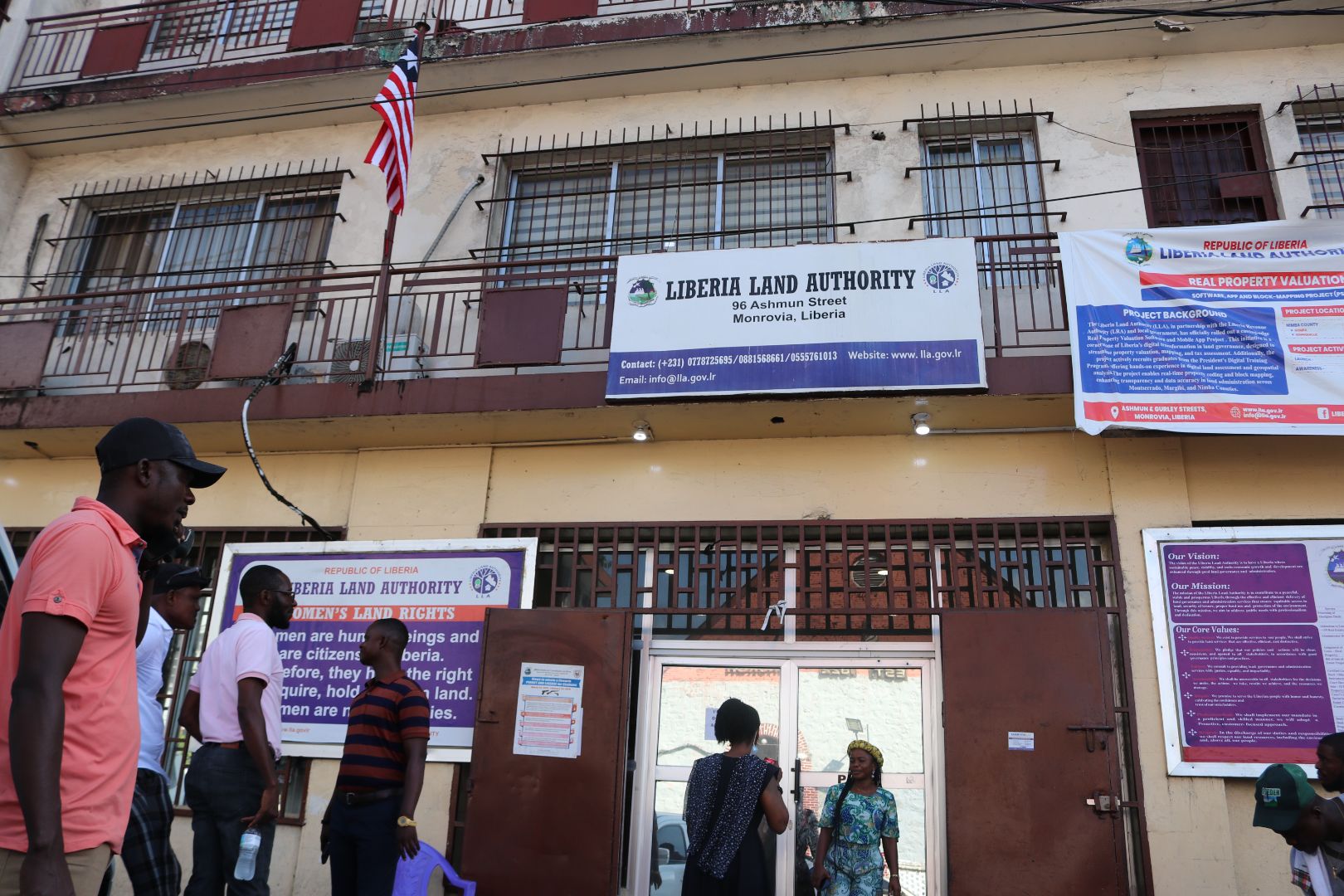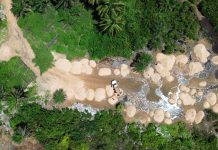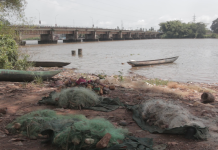Top: The headquarters of the Liberia Land Authority on Ashmun Street, Monrovia. The DayLight/Harry Browne
By James Harding Giahyue
MONROVIA – On Monday, the Liberia Land Authority justified issuing a fraudulent land deed as part of an illegal cocoa cultivation agreement between Grand Gedeh authorities and a Burkinabe businessperson. It was responding to a DayLight investigation and another by the Liberian Investigator, accusing it of wrongdoings.
The DayLight had established that Chairman Samuel Kpakio violated a moratorium on public land transactions announced by President Joseph Nymah Boakai in this year’s State of the Nation Address. The investigation determined that Kpakio had masterminded the scam and was not misled, as the Land Authority had claimed.
The Liberian Investigator, on the other hand, found evidence that the deed was illegally issued to two entities: the Grand Gedeh Local Government Reserved Farmland and Moore Agro Inc., co-owned by ex-Minister of Public Works Gyude Moore.
The Land Authority revoked the deed in question, while Grand Gedeh County authorities terminated their agreement with the Burkinabe farmer.
In a press release, the Land Authority defended Kpakio’s actions about two weeks after The DayLight investigation. It said accusations against Kpakio were “unsubstantiated,” meant to tarnish his reputation, and “derail” donors’ attention.
“The Liberia Land Authority wishes to inform its implementing partners that the moratorium issued has halted all leases and sales of public land. Thus, the development grant deed signed was in no way a violation of the moratorium,” the release read.
It restated the suspension of Paye Freeman, the Grand Gedeh Land Administrator, and David Togbasie, county land dispute officer. The Land Authority blames the two men and Grand Gedeh Superintendent Alex Grant for “misleading” Kpakio into issuing the deed. All three men declined to speak on the matter.
But an analysis of the Land Authority’s justification, a relook at the deed, laws and regulations, and interviews with people knowledgeable of the land sector, corroborated the newspapers’ publications. The evidence further exposed the institution’s attempt to scapegoat and lessen Kpakio’s role in the illegal activities.
The moratorium, which was lifted in August, did not mention the phrase “development grant deed.” However, the facts contradict the Land Authority’s defense. A development grant deed can be issued only for public or government land, under the Land Rights Act.
The 2018 law categorizes land into private and customary, government and public, whose sale and lease the Land Authority oversees.

“Development grant deeds come from public land because the Land Authority manages public land,” said a person familiar with the entity’s workings. “Development grant deeds cannot be issued on private land, government land (normally already allocated), customary land, unless in certain cases.”
Even other government institutions could not get a deed during the time of the moratorium, according to the source. They got an attestation, one of which The DayLight has seen.
The source said the Liberia Land Authority’s board of commissioners was instituting a “stricter process” for development grant deeds to avoid such abuse. “Though not chronological, there are ongoing discussions to streamline the development deed process,” added the source.”
Two lawyers and an ex-executive of the Land Authority, who also preferred anonymity, agree with the source.
“A development grant deed is taken from the public land domain. Therefore, if a moratorium is placed on public land, that also includes a moratorium on the granting of Development Grant Deed to whoever,” the ex-executive told The DayLight.
Kpakio’s issuance of the deed to Grand Gedeh and Moore Agro Inc. undermined the very reason why the moratorium was imposed. It was meant to curb land grab, prevent conflicts and promote sustainable land-based investment. The President had said it would remain in place until the agency created regulations and guidelines to govern these things.
Moore, the ex-Public Works Minister, who owns 70 percent of Moore Agro Inc.’s shares, denies knowledge of the deed. He told The DayLight, “I have no idea what this is about. Moore Agro Inc. has nothing to do with Grand Gedeh or land.”
A person familiar with the deed processing said Moore Agro Inc. might have mistakenly copied from an old deed. The experts said the likely mistake could be the result of hasty work, a common feature of fraud or forgery.
By issuing the deed, the Land Authority violated several provisions of the Land Rights Act and Regulations. It failed to investigate whether the 500 acres of land in Grand Gedeh’s B’hai District were public or customary land. It did not consult landowning towns and villages, or get their consent, the most crucial aspect of land reform. The survey was kept secret, and there was no competitive bidding.
But those were not the only violations, though.
Kpakio signed the deed two days before the survey of the land was completed, against standard procedure. David Sluwar, who conducted the survey, was not licensed for a government or public land survey. Rather, Sluwar is licensed to survey only private plots, based on the official surveyors’ register. The Surveyors Licensing and Registration Board did not respond to a DayLight inquiry on Mr. Sluwar’s role in the scandal.
Integrity Watch Liberia provided funding for this story. The DayLight maintained complete editorial independence over the story’s content.





Facebook Comments